Music In Africa remembers Lucky Dube
Lucky Dube, South Africa's most successful reggae artist, was murdered in Johannesburg during an attempted carjacking on 18 October 2007. The icon, a multi-award-winning superstar of the genre, spoke not only of pain and suffering in his lyrics, but also of unity, peace, freedom and respect. He was just 43 years old when the incident happened.
 Lucky Dube died on 18 October 2007.
Lucky Dube died on 18 October 2007.
Several events and activities are taking place around the continent, as fans take a moment to remember Lucky Dube on the anniversary of his death.
To mark the anniversary, Music In Africa talked with a few African reggae artists about their favourite Lucky Dube memories and what this day means to them.
Here is what they had to say:
Xumaan: singer, rapper and activist (Senegal)
Personally, I look up to Lucky Dube as one of the Bob Marleys of Africa. There is also Alpha Blondy, but Lucky Dube’s story is different. He came from a poor neighbourhood where apartheid existed and he managed to rise out of this situation. The first time I saw him on stage, I was like, okay, and that’s what I am talking about. The man on stage was in another dimension. His music had a South African flavour and through his lyrics, people were able to visualise what was going on in South Africa, which was truly amazing. As artists and activists we should inspire the youth into asking themselves these questions: how can I get out of the ghetto with music,and how can I inspire those in the ghetto with my music?
The first time I saw him on stage, I was like, okay, and that’s what I am talking about – Xumaan
Adjobalove: singer and activist (Rwanda)
Lucky Dube was a prophet. I have been listening to him for a very long time and everything he warned us about has come to pass. His skills and acumen as a songwriter were sharp and deep, which gave great power as an entertainer. Such musicians are nowhere to be seen at the moment. Many fear speaking against the regime because African governments have become very brutal in their treatment of activists. As artists, we should not relent in the fight for justice and equality. We should strive to do positive things which people will remember us for, just like Lucky Dube did.
Pisco: singer (Burundi)
This is a day observed by playing the songs of the reggae maestro. Today, my Rukinzo Right Band will be playing most of his hits. Lucky Dube was a musician that I loved since I was a young boy, particularly the instrumentals: the rhythm was catchy. He was the most articulate singer of the ghetto and that’s why I was crushed when I head of his untimely death. Even though I never met him, I consider him my father in music. There will never be a musician like him in Africa and the world as a whole.
DJ Ras Nesta: singer and producer (Uganda)
Lucky Dube’s voice represented an era of revolution and a generation of ambitious youth that yearned for a better Africa, free from foreign influence. When he died the lyrics from his songs become sacred and his voice was therapy for many of us. Just like the great Fela Kuti, Lucky Dube was a one-of-a-kind artist with a uniqueness that cannot be compared to anyone else in the African music industry. 'Crazy World' is my favourite song by him because it makes so much sense now: we are truly living in a crazy world, where people are killing each other, politicians are telling lies and so much more.
When he died the lyrics from his songs become sacred and his voice was therapy for many of us – DJ Ras Nesta
Gravitti Band: singers (Kenya)
His music is timeless and the message speaks to people of all ages. Lucky Dube was a pace-setter and an example of how music can be used to positively affect society. He was committed to his cause and this is evident in his output in the studio and his stage presence during performances. As a band we celebrate and pay tribute to his legendary status by including his songs in all our performances. Some of our favourite numbers by him include 'Different Colours', 'Remember Me', 'Back To My Roots' and 'Together As One', among others.
Case Blanco: singer (South Sudan)
Lucky Dube was a patriot, a role model and a freedom fighter. His reggae lyrics - for example, songs like 'House of Exile', 'Different Colours' and many others - confirm that. Growing up, I identified with his music, especially when my country was plunged into war. His music preached about the unity and freedom that we all yearned for. As musicians, from his legacy, we learn that music should not only be for personal gains but for the good of the society. And for those of us doing this style of music, we need not forget that reggae music is a conscious and revolutionary musical style.
autoplay:0]










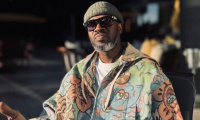

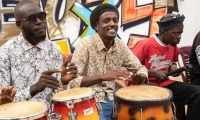






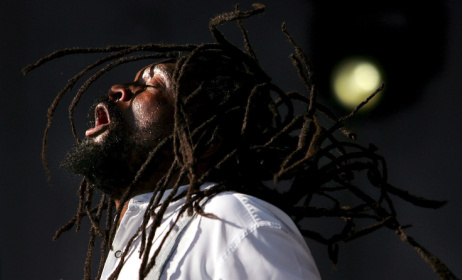

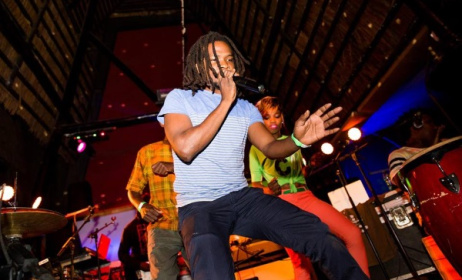

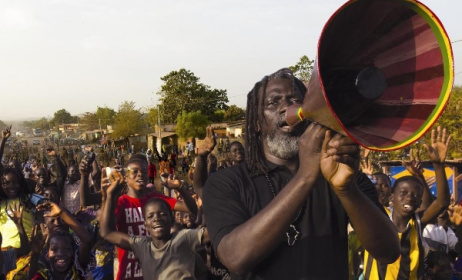


Comments
Log in or register to post comments